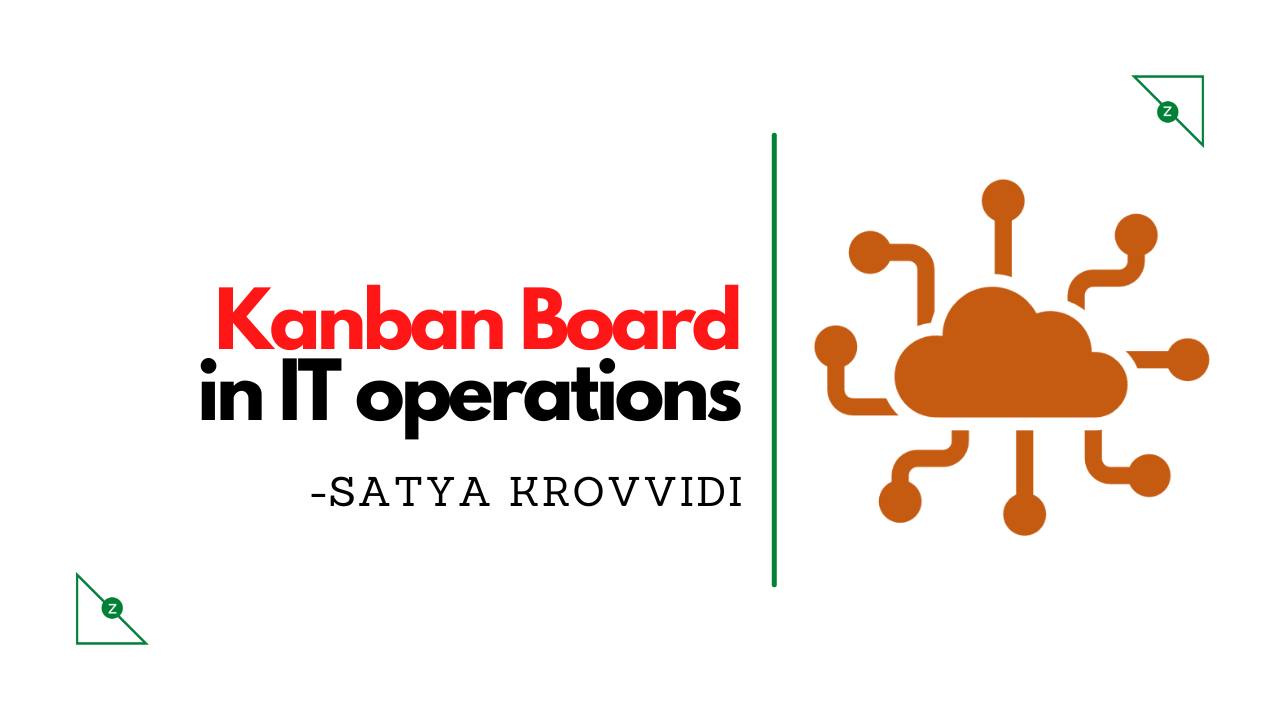I was working in IT Ops field and was excited about implementing agile when it is available for services industry as well. Attended the Agile boot camp & other trainings available at various sources to understand how I can implement Kanban board for IT Operations but no luck all the examples were related to product development Kanban board.
Background
While experimenting about Kanban board for daily incidents too many questions & concerns on how to plan & execute this Kanban board in my day-to-day activity.

After multiple attempts got this idea of execution where there could be many other options. So let’s talk about how I started my K board for Incident management.
Kanban Board
The purpose of Kanban board (it is nothing but sign board) is to track the work & it should be easy for us to identify the bottlenecks. You also might have so many questions like me how we can do it for incident management 😊. In incident management biggest concern for any management would be age of the tickets and customer satisfaction. If the age of the tickets go high it directly works on the customer satisfaction. By taking this as a keep point lets implement the K board in below format where we can apply WIP limit as well.

My Experiment Board
In the below table Backlog can be daily incidents that get assigned to your team. Deferred tickets are the ones which are waiting for the customer or vendor or any other reason where we are dependent on. Other columns are self-explanatory.
Important point to remember is “Cards in the backlog” should not miss the SLA while waiting for the resolution.
Now aim of any manager is to make sure to decrease the count of aged incidents and move towards resolution. So, if we can track this way we can know where the bottle neck is and what need to be done to achieve resolution. We can now apply WIP limit to each of the columns (excepting backlog) to make sure our team doesn’t cross that number to maintain harmony.
Example of Individual Team board:
| Backlog | Incidents Greater than 90 days | Incidents Greater than 60 days | Incidents Greater than 300 days | Incidents Greater than 15 days | Incidents Greater than 7 days | other Incidents |
More Options
Similarly, we can have separate boards for the Change & Major incident board (Outage board) so that we can deliver better results.
We can also try using the priority-based board like the columns in K board can be based on P1 P2 & P3 incidents along with backlog.

Hope this would have given some idea to start Kanban board in your IT operations 😊
What next?
Implementing a board is good but what is the use? how can I measure? In-terms of improvement or learning we made?
There are metrics available for every K board that is Lead time & Cycle time. Lead time will help you in understanding the time taken to complete the incident from the inception to closure whereas the cycle time will help you in realizing the actual time spent in troubleshooting the incident towards resolution.
Next comes the question how will I know the lead & cycle times? There are many tools/analytics available in the market one among them is
- CFD (Cumulative Flow Diagram),
- Monte Carlo simulations,
- Cycle time Scatterplot,
- Aging WIP
In the above example time taken for the Incident in column >90 days to closure of the ticket is lead time and where as time taken for the incident to move from >90 days column to 30 days column is cycle time
Conclusion
Implementing K board will help us in identifying the bottlenecks and also give the complete flow of the teams work and it is easy to manage. there are multiple tools available in the market that are ready to use like Trello, Jira, Azure Devops etc.. To read further more on Kanban Metrics you can refer to this blog https://zaidanconsulting.com/2022/01/kanban-metrics/


About Satya
Satya is a guest author on Project Management @ Zaidan. By profession she is a Project Management Practitioner and trainer. She comes with around 17+ Years of experience primarily from the Software Industry. She is certified on PMI PMP and ACP.

About Zaidan Consulting
Zaidan Consulting are specialists in Project and Program Management space. Our training offerings include:
- Project Management Training
- Agile Training
- PMI®-ACP® Prep Training
- PMI®-PMP® Prep Training
- PMI®-CAPM® Prep Training
- ScrumStudy™ Authorized Training Partner (A.T.P)
Or you can contact us @+(91) 7672011471
Or Email us: contact@zaidanconsulting.com
